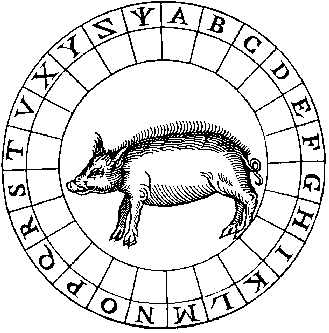『哲学原理』の英訳から

デカルトによる感覚の分類
『哲学原理』の英訳から

池田光穂
René Descartes, Principles of Philosophy,1644
4: The earth
190. Classifying the kinds of sensation, starting with internal sensations, i.e. emotional states of the mind and natural appetites. The wide variety in sensations comes from differences in the nerves themselves and from differences in the sorts of motion that occur in individual nerves. It's not that each individual nerve produces a particular kind of sensation; indeed, there are only seven principal groups of nerves, two for internal sensations and five for external sensations.
(1) The nerves that go to the stomach, oesophagus, throat, and other
internal parts keep our natural wants supplied, and produce one kind of
internal sensation, which is called 'natural appetite'.
(2) The little nerves
running to the heart and the surrounding area produce the other kind of internal sensation,
a kind that
includes all the disturbances or passions and emotions of the mind such
as joy, sorrow, love, hate and so on. For example, when the blood has
the right consistency so that it expands in the heart more readily than
usual, it relaxes the nerves scattered around the openings, and sets up
a movement leading to a subsequent movement in the brain producing a
natural feeling of joy in the mind; and other causes produce the same
sort of movement in these tiny nerves, thereby giving the same feeling
of joy. When you imagine yourself enjoying something good, that act of
imagination doesn't itself contain the feeling of joy, but it causes
the animal spirits to travel from the brain to the muscles in which
these nerves are embedded; which causes the openings of the heart to
expand, which in turn produces the movement in the tiny nerves of the
heart which inevitably results in the feeling of joy.
[Descartes accepted and
helped to popularize the view that human physiology involves 'animal spirits'—an
extremely finely divided fluid that transmits pressures through tiny
cracks and tunnels—the body's 'hydraulic
system', as it has been called.]
In
the same way, when you hear good news, what happens first is that your
mind makes a judgment about it and rejoices with the kind of
intellectual joy that occurs without any bodily disturbance which is
why the Stoics allowed that a wise man, though free of all passion,
could experience joy of that kind). Later on when the good news is
pictured in your imagination, the spirits flow from the brain to the
muscles around the heart and move the tiny nerves there, which causes a
movement in the brain, which produces in the mind a feeling of animal
joy.
Another
example: Your
blood is too thick, flows sluggishly into the ventricles of the heart,
and doesn't expand enough inside it. This produces a different movement
in those same small nerves around your heart; and when this movement is
transmitted to your brain it produces a feeling of sadness in your
mind, perhaps without your having the least idea of why you are sad.
[Descartes might have
quoted this:: In sooth, I know not why I am so sad. It wearies me; you
say it wearies you; But how I caught it, found it, or came by it, What
stuff 'tis made of, whereof it is born, I am yet to learn. (the opening
lines of Shakespeare's The
Merchant of Venice]
Various other causes could produce the same feeling by starting up the
same kind of movement in these nerves. Other movements in these tiny
nerves produce love, hatred, fear, anger and so on—I'm taking these to
be merely emotions or passions of the soul, i.e. •confused thoughts
that occur in the mind not through its own activity but through events
in the body with which it is closely conjoined. Utterly different from
these emotions are the •clear thoughts that we have concerning what is
to be embraced or desired or shunned—for example, the clear thought
that it would be bad to be attacked by that tiger is different from the
confused thought that consists in terror of being attacked by the
tiger. The same applies to the natural appetites such as hunger and
thirst, which depend on the nerves of the stomach, throat etc. They're
completely different from the volition toeat, drink and so on. . . .
Do not paste, but [re]think this message for all undergraduate students!!!